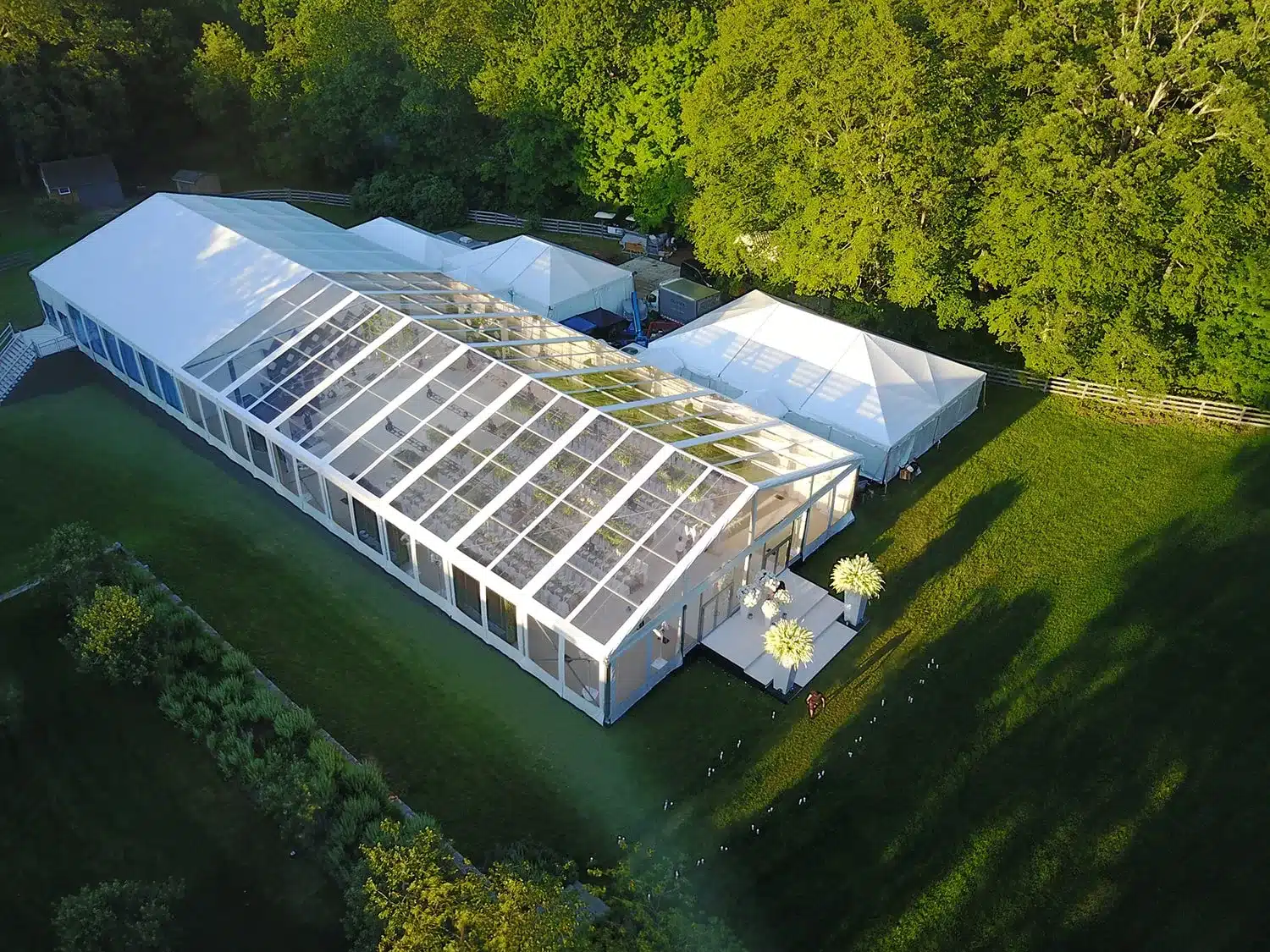Planning an outdoor celebration in Charlottesville is exciting, but it comes with unique challenges like unpredictable weather, site logistics, and keeping guests comfortable. A tent rental checklist is the key to turning those challenges into a smooth, stress-free experience. From selecting the right tent style and size to adding accessories that elevate comfort and design, careful planning ensures every detail is covered. With Skyline Tent Company’s expertise in luxury tent rentals and professional event setup, you can confidently create a celebration that blends elegance with reliability.
Key Takeaways
- A tent rental checklist helps you stay organized and avoid last-minute surprises.
- Choosing the right tent style and size ensures comfort and enhances your event’s look.
- Accessories like lighting, flooring, and climate control transform a basic tent into a complete venue.
- Site planning and permits are essential for safety and smooth setup.
- Budgeting ahead of time keeps costs under control and prevents hidden fees.
- Wedding and corporate events each benefit from tailored layouts, décor, and planning details.
Why a Tent Rental Checklist is Essential for Outdoor Event Success
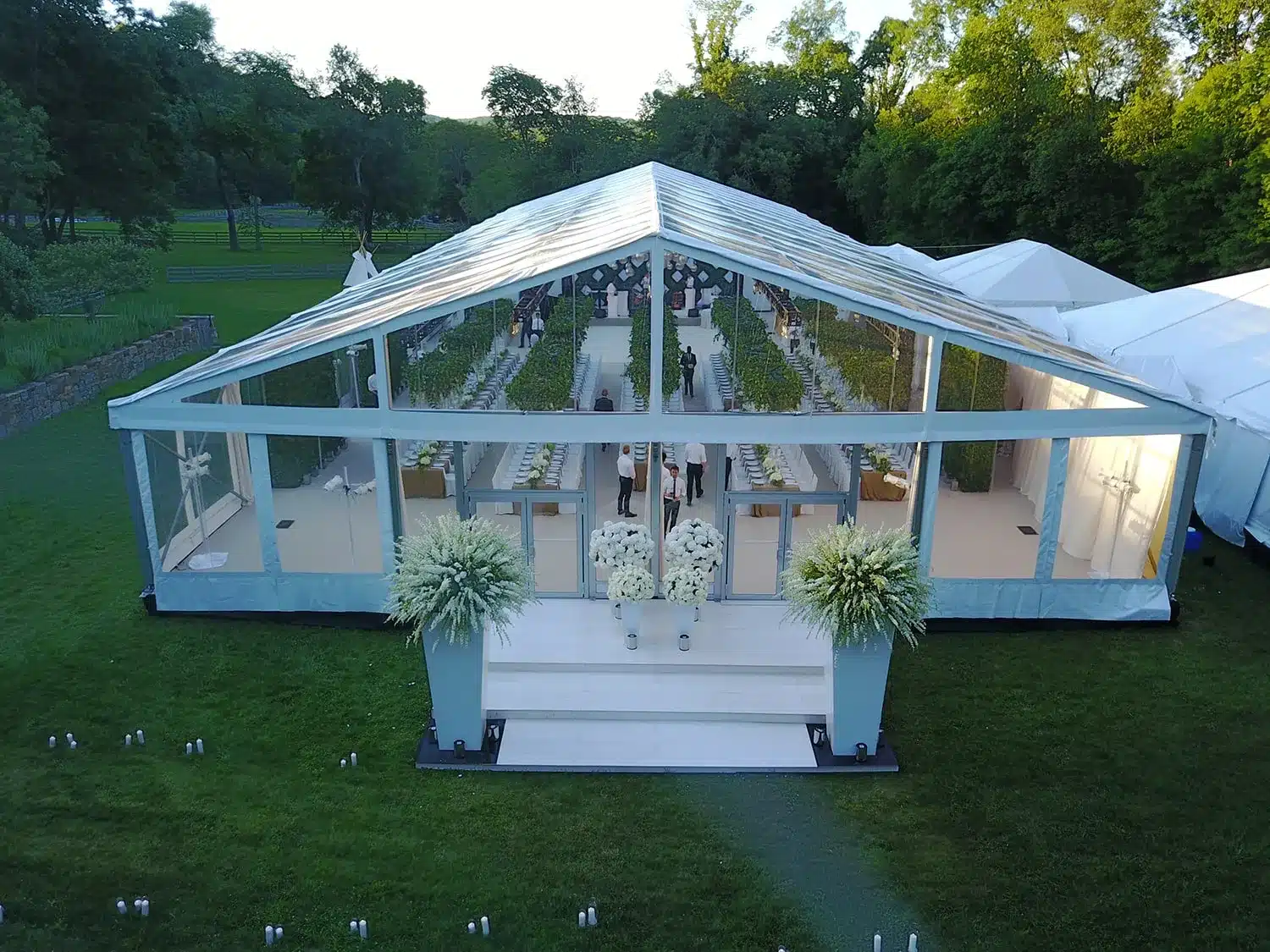
A tent rental checklist acts as your blueprint for a flawless event. It helps eliminate guesswork, reduce stress, and keep your guests comfortable from start to finish. With a clear plan covering everything from permits to power needs, you can be confident no detail slips through the cracks. By outlining each step of the process, the checklist provides structure, accountability, and a reliable timeline for setup, event day, and takedown.
The Power of Planning: Why Checklists Matter
Successful events don’t happen by chance, they happen through careful planning. A well-crafted checklist ensures every important detail is addressed, minimizing the risk of oversights or delays. It also helps clarify responsibilities, improves communication among your team and vendors, and proactively addresses potential challenges. Simply put, planning ahead with a checklist sets the stage for a smoother, more enjoyable event.
Key Benefits of a Tent Rental Checklist
A tent rental checklist simplifies complex event logistics and helps you stay in control:
- Clear Roles and Timelines: Assigns responsibilities, from site surveys to equipment sourcing, with deadlines everyone can follow.
- Better Communication: Keeps planners, vendors, and setup crews aligned, avoiding missteps.
- Risk Management: Prepares for weather, safety, and backup needs before they become issues.
- Budget Oversight: Tracks expenses like deposits, rental durations, and accessory costs to prevent surprises.
This structured approach keeps your planning organized and ensures steady progress toward a well-prepared event.
How Smart Planning Elevates the Guest Experience
When planning is proactive instead of reactive, your event runs more smoothly. With every step mapped out, deliveries, inspections, and setup, crews arrive ready to work efficiently, saving time and reducing errors. This foresight also protects essential features like flooring, lighting, and climate systems, resulting in a polished setup that feels seamless to your guests and leaves a lasting impression.
Choosing Your Ideal Event Tent: Styles, Sizes, and Sophistication
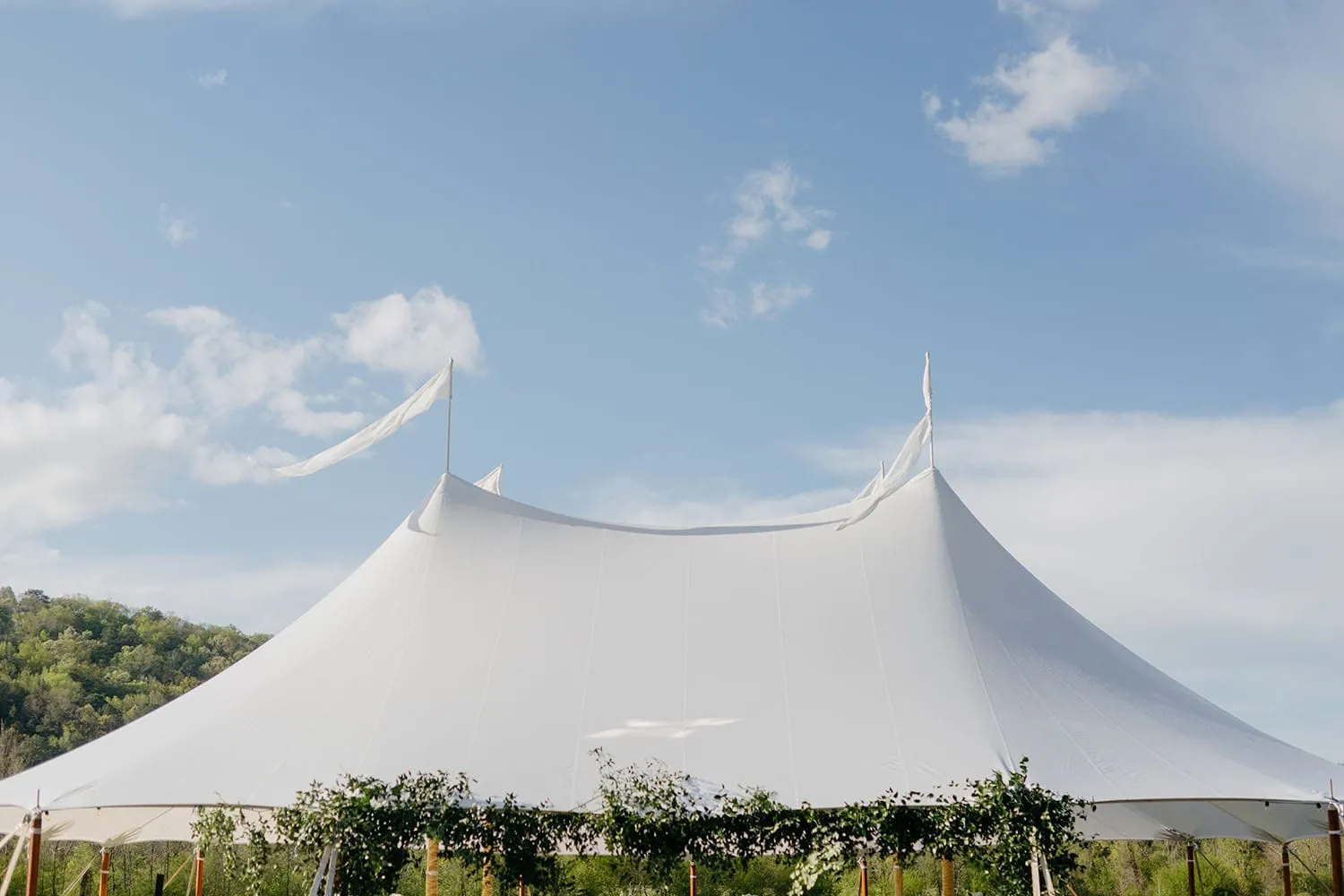
Selecting the right tent is about more than just coverage, it sets the tone for your entire event. The size, style, and look of your tent should align with your guest count, event activities, and design vision. Taking the time to match your tent choice with your venue and theme ensures guests are comfortable while creating the perfect backdrop for your celebration.
Tent Selection and Site Assessment
Your choice of tent goes hand in hand with the site where it will be installed. Factors like guest numbers, ground stability, and local regulations must be considered before finalizing a tent style. A thorough site assessment helps determine not only the best tent option but also ensures a safe and secure setup.
Frame Tents vs. Pole Tents: Key Differences
Understanding the basics of tent types makes your decision easier:
Frame tents work well on surfaces like concrete or areas with limited space, while pole tents offer timeless charm and elegant lines for open fields and larger lawns.
Elevated Options: Clear Top and Sailcloth Tents
If you want your tent to make a statement, specialty styles offer both function and beauty:
- Clear Top Tents: Transparent roofing lets in natural light during the day and creates stunning views of the night sky.
- Sailcloth Tents: Graceful lines and soft, natural fabric create a romantic, nautical-inspired feel.
Both options highlight the surrounding scenery while offering a unique atmosphere that pairs beautifully with creative lighting and décor.
Essential Tent Accessories for Comfort and Atmosphere
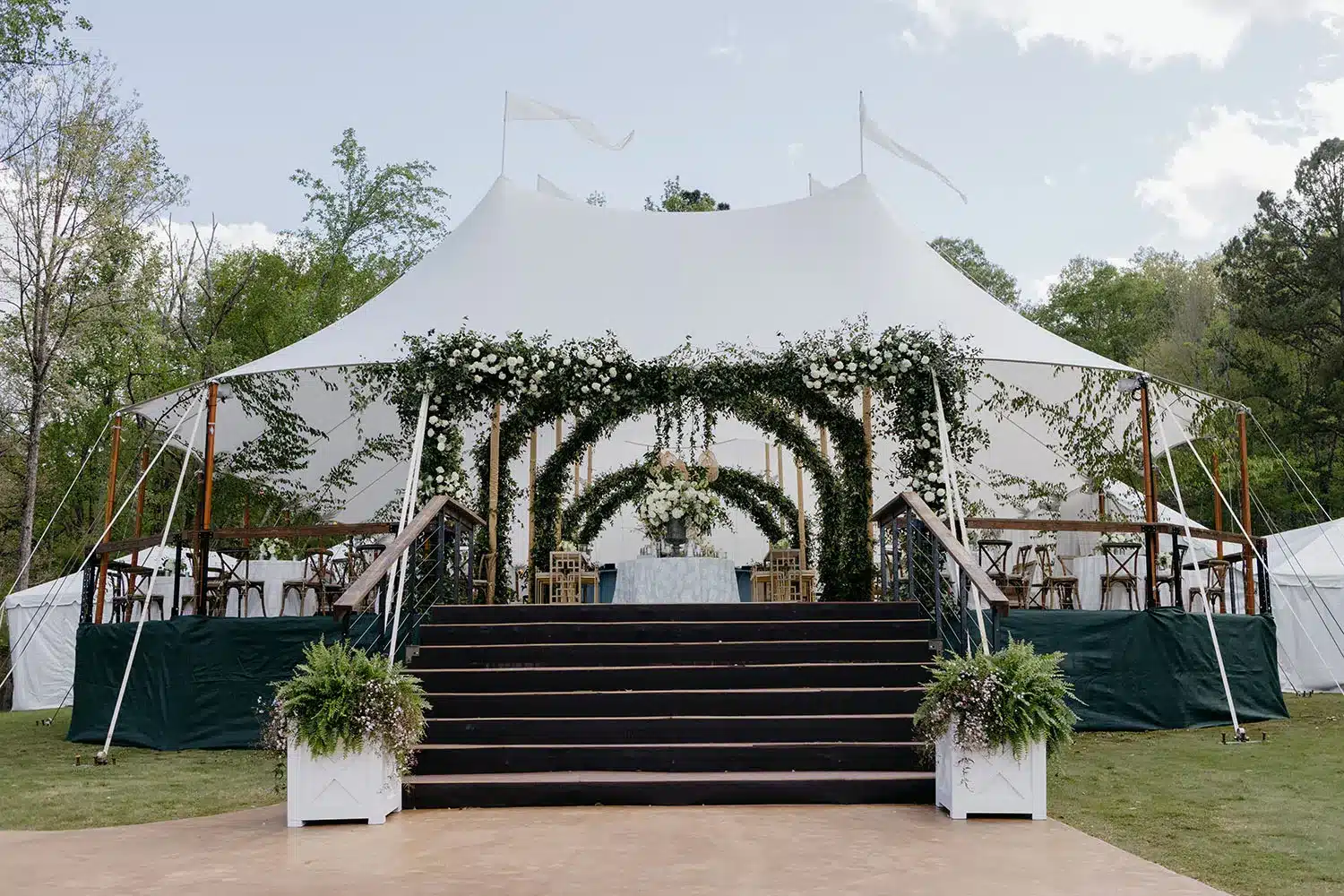
A tent creates the foundation for your event, but it’s the accessories that transform it into a welcoming and memorable space. Climate control, lighting, flooring, furniture, and reliable power all play a vital role in shaping the guest experience. The right combination turns a simple canopy into a comfortable, stylish venue that adapts beautifully to your design and the season.
Climate Control: Keeping Guests Comfortable
Temperature can make or break an outdoor event. With the right equipment, you can keep your guests cozy in cooler weather or refreshed in the summer heat:
- Heating Options: Propane or electric heaters create a warm, inviting atmosphere for fall or winter celebrations.
- Cooling Solutions: Portable air conditioning units and fans help circulate air during warmer months.
- Ventilation Panels: Sidewalls with vents allow for natural airflow and pleasant cross-breezes.
These solutions keep the tent environment comfortable while also protecting décor, linens, and AV equipment.
Lighting: Setting the Mood
Lighting does more than brighten a space, it defines the mood and enhances your design theme. Options include:
- Crystal Chandeliers: Elegant fixtures that add a sense of luxury.
- String Lights: Café-style strands for a warm, intimate glow.
- LED Uplighting: Flexible color washes to highlight décor and architecture.
Layering different lighting types creates depth and ambiance, making your tent feel polished and inviting.
Flooring: Comfort and Safety Underfoot
Flooring ties your space together, keeping guests comfortable and safe:
- Subflooring Panels: Create a stable base on uneven ground.
- Hardwood or Vinyl Floors: Add elegance for receptions and dance floors.
- Outdoor Carpeting: Defines lounge areas while softening foot traffic.
These options prevent tripping hazards, protect shoes, and provide a unified look across your event space.
Furniture and Layout: Designing for Flow
The way you arrange seating, stages, and lounge areas impacts how guests interact and enjoy the event. Consider:
- Clear sightlines for ceremonies or presentations.
- Lounge furniture in cozy corners for relaxed conversation.
- Dance floors and risers for entertainment.
Strategic layouts balance functionality with aesthetics, ensuring smooth guest flow without overcrowding.
Power: The Backbone of Every Event
From lighting to sound systems, reliable power keeps your event running smoothly. Generators and proper distribution systems ensure every element, heating, cooling, music, and décor, operates without interruption. Coordinating with professionals helps prevent outages and guarantees compliance with safety standards.
Sustainable Touches
If sustainability is part of your event vision, small choices can make a difference. Energy-efficient LED lighting, reusable décor elements, and eco-friendly climate solutions help reduce environmental impact while maintaining luxury and comfort.
Mastering Site Selection and Logistics for Your Tent Events
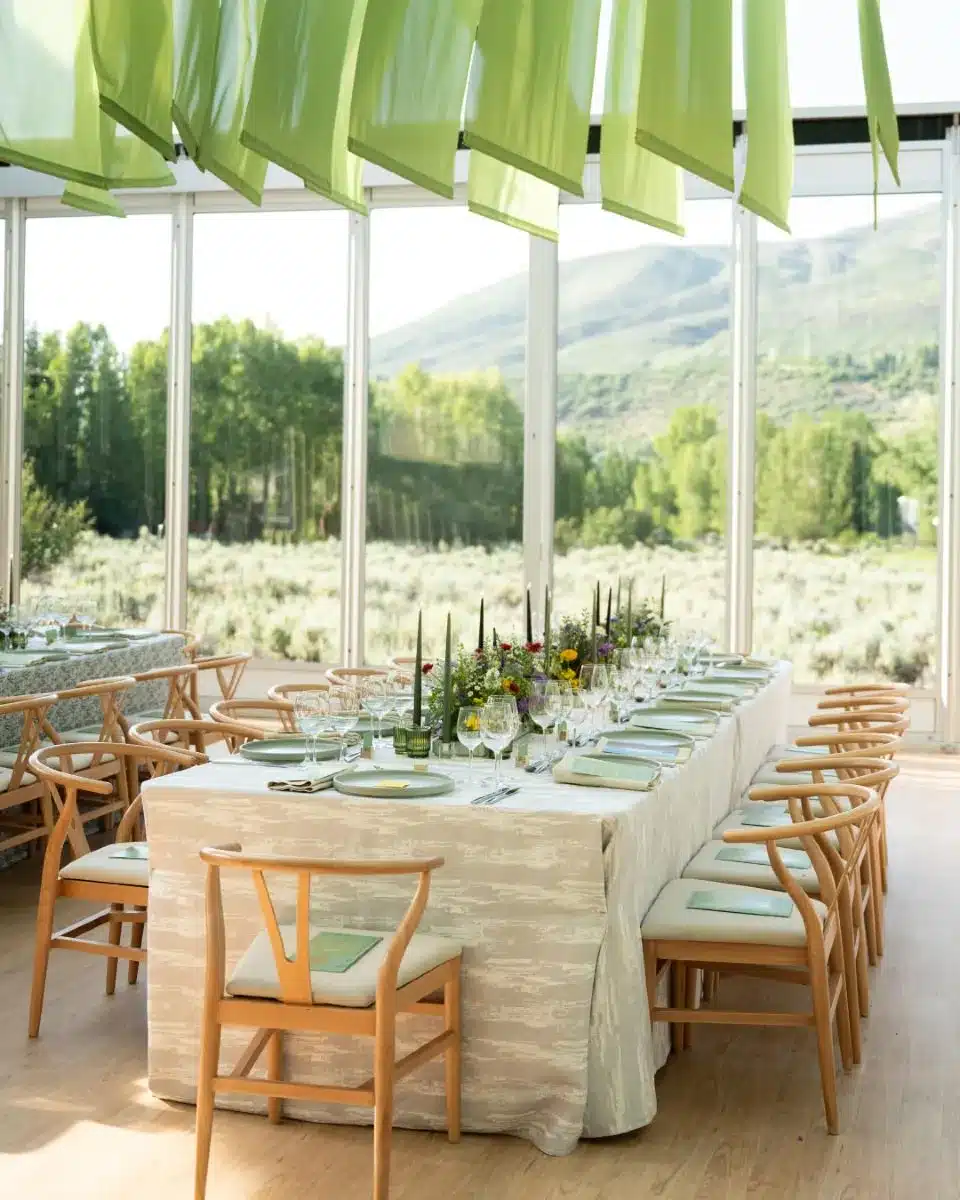
Careful site selection and meticulous logistics planning are crucial to ensure your chosen location meets all structural, regulatory, and operational requirements. This lays the essential groundwork for a safe, efficient setup and a flawless guest experience. Evaluating ground conditions, access routes, and local regulations early in the process helps prevent costly delays and last-minute cancellations.
Key Factors for Assessing Event Sites for Tent Rentals
A thorough site evaluation requires a detailed examination of the terrain, dimensions, and accessibility to guarantee structural stability and regulatory compliance.
- Confirm the soil composition and drainage capabilities to prevent water accumulation beneath flooring systems.
- Precisely measure the usable footprint and necessary buffer zones for emergency access and service vehicle maneuverability.
- Verify the proximity to essential utilities, convenient parking areas, and primary guest arrival points.
A comprehensive site assessment directly informs tent selection, foundation methods, and strategies for obtaining necessary permits, establishing a solid foundation for secure and successful tent installation.
Navigating Permits and Regulations for Tent Installations
Permit requirements can vary significantly by location, but typically include permits for temporary structures, fire safety approvals, and electrical inspection clearances.
- Submit detailed site plans and tent layout diagrams to your local building department or fire marshal for structural review.
- Obtain a fire department permit, often requiring certification of flame-retardant tent fabrics.
- Secure necessary electrical permits for the safe placement of generators and the installation of hard-wired power distribution systems.
Proactively navigating these regulations helps prevent potential fines and operational shutdowns, ensuring your event proceeds without any legal interruptions.
Ensuring Safety and Emergency Preparedness at Your Tent Events
Rigorous safety planning is essential for identifying potential hazards and establishing clear emergency protocols, ensuring the security of all attendees throughout the event.
- Map out and clearly mark all exit routes, fire extinguisher locations, and designated first-aid stations.
- Train your event staff on emergency evacuation procedures and assign specific roles for emergency response.
- Install fire-retardant barriers where necessary and maintain unobstructed access routes for emergency medical vehicles.
Proactive safety measures significantly reduce risks and foster a sense of confidence among both guests and event staff, contributing to a seamless and secure event atmosphere.
Emergency Contact Lists and Safety Protocols: What You Need to Know
Your emergency contact list should prominently feature on-site event managers, local fire and police departments, emergency medical services, generator technicians, and your tent rental coordinators. Including rapid-response checklists for scenarios like fires, severe weather events, or medical emergencies streamlines decisive action when time is of the essence.
Best Practices for Professional Tent Setup and Takedown
Engaging experienced installation crews is the surest way to guarantee structural integrity and efficient teardown within strict timelines.
- Stage all equipment and accessories in a logical sequence, starting with flooring, then frame assembly, sidewall attachment, and finally, accessory installation.
- Conduct thorough mid-setup inspections to verify cable tension, anchor security, and fabric alignment.
- Document the takedown process meticulously to ensure proper handling of tent components and minimize the risk of damage.
Professional crews operate with a strong commitment to safety standards, expedite the setup process, and protect your investment in high-quality tent systems.
Interactive Checklists and Visual Guides: Enhancing Your Planning Process
Interactive digital checklists and clearly annotated site maps facilitate real-time collaboration among planners, vendors, and installation teams. Visual guides effectively reduce ambiguity, confirm task completion, and provide clear visibility of progress milestones for every stage of your tent rental management.
Special Considerations for Wedding Tent Planning
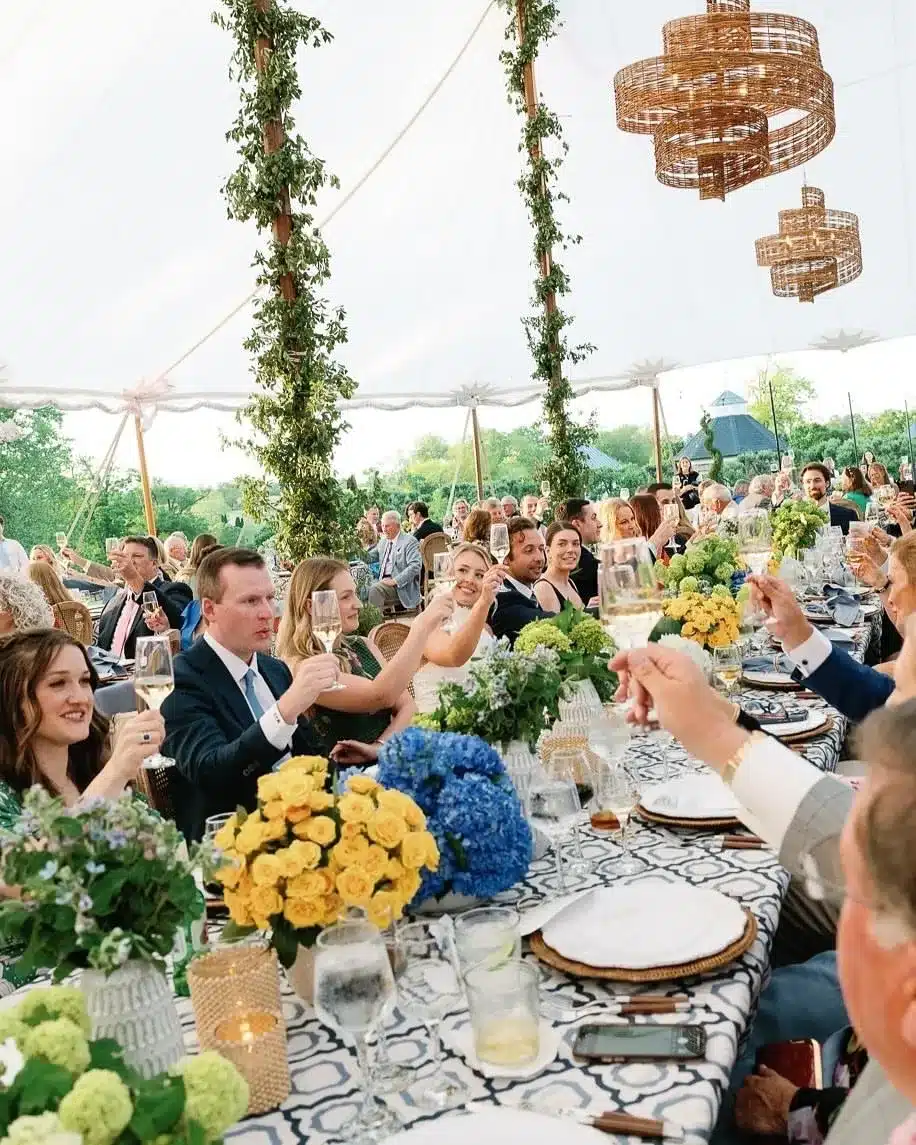
A wedding tent is more than a shelter, it’s the canvas for one of life’s most important celebrations. The right blend of beauty and function ensures your tent feels romantic, comfortable, and perfectly suited to the flow of your day.
Must-Have Essentials for Your Wedding Tent
Certain details elevate a wedding tent from simple to stunning while keeping guests at ease:
- Drapery and Liners: Soft fabrics transform structural frames into elegant backdrops.
- Lighting Features: Chandeliers or café lights create a warm, magical glow.
- Flooring Choices: Polished wood or plush carpeting ensures comfort and mobility.
- Climate Control: Heaters or fans keep the tent season-ready, no matter the weather.
These essentials not only protect your décor but also add charm and sophistication to your celebration.
Designing the Layout: Ceremony to Reception
A thoughtful layout helps guests move naturally from one moment to the next. Consider dividing your tent into purposeful zones:
This flow respects natural guest movement and keeps the celebration seamless from vows to final dance.
Lighting and Décor: Setting the Romantic Tone
Lighting and décor bring intimacy and emotion to a wedding tent. A few well-chosen touches can transform the atmosphere:
- Twinkle Lights: Drape across the canopy for a starlit effect.
- Uplighting: Soft washes of color around drapery or décor add sophistication.
- Floral Installations: Suspended arrangements create unforgettable focal points.
Together, these elements layer romance and personality into the space, making the setting as memorable as the occasion itself.
Distinct Planning and Setup for Corporate Event Tent Rentals
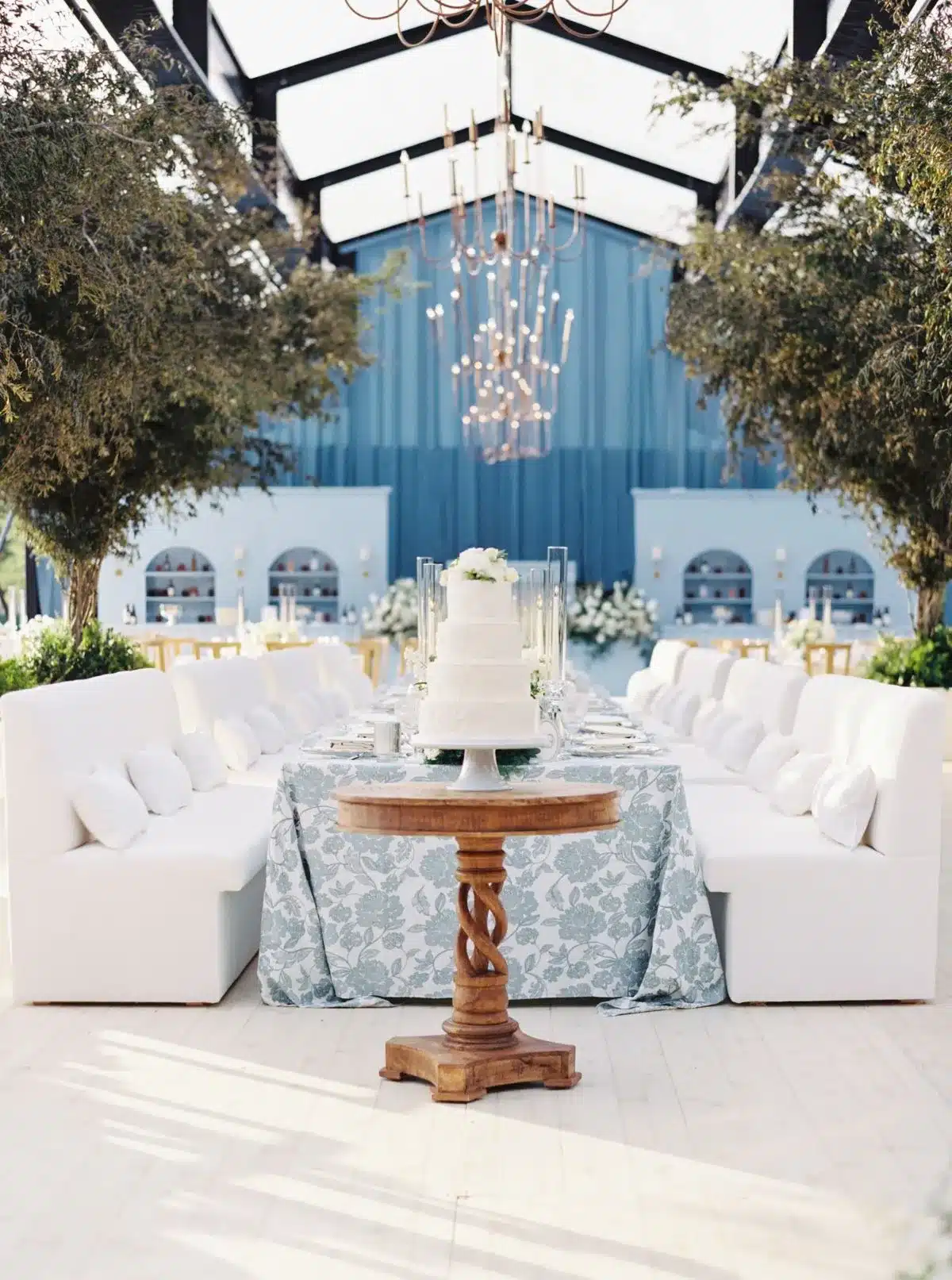
Corporate events place a strong emphasis on branding, seamless technology integration, and efficient attendee logistics. This requires tents that can effectively support audiovisual equipment, provide ample networking spaces, and manage streamlined foot traffic.
Branding and Customization Options for Corporate Tents
Corporate tents offer a range of customization possibilities, including sidewalls printed with company logos, branded entrance awnings, and custom-colored fabrics designed to powerfully reinforce your company’s identity.
Custom banners, integrated digital signage mounts, and modular staging systems can be incorporated to align perfectly with your corporate messaging while maintaining a polished, professional aesthetic.
Key Setup Considerations for Conferences and Galas
Setting up for conferences and galas demands precise layout planning to accommodate stages, seating arrangements, dedicated breakout areas, and efficient catering flow.
- Designate specific zones for registration desks and coat check services.
- Carefully plan the routing of cables for AV equipment, ensuring protective coverings are used to prevent tripping hazards.
- Confirm that all technology,including projectors, sound systems, and lighting consoles, has stable power sources and adequate ventilation.
These meticulous arrangements guarantee polished presentations, a seamless attendee experience, and strict adherence to all safety regulations.
Conclusion
A well-structured tent rental checklist is the foundation of a successful outdoor event. By organizing details such as tent selection, site planning, accessories, and guest comfort, you set the stage for an unforgettable experience. Skyline Tent Company specializes in premium tent rentals, seamless installations, and customized solutions that bring your vision to life. Whether you’re planning a romantic wedding or a polished corporate gathering, their team ensures every detail is managed with precision and style, so you can focus on enjoying the celebration.
Frequently Asked Questions
How do I know what size tent I need for my event?
The size depends on your guest count, seating style, and planned activities. A general rule is 10–15 square feet per guest, with extra space for dance floors, stages, or buffet areas.
What accessories should I consider for a tent rental?
Popular accessories include lighting, flooring, climate control, and lounge furniture. These additions enhance comfort, safety, and the overall atmosphere.
Do I need permits for a tent rental in Charlottesville?
In many cases, yes. Temporary structures often require permits, along with fire safety and electrical approvals. Your rental provider can guide you through the local requirements.
How can I make a wedding tent feel more elegant?
Drapery, chandeliers, string lights, and floral installations add romance and charm. Pair these with polished flooring and climate control for a refined experience.
What’s the difference between a frame tent and a pole tent?
Frame tents use a metal framework and offer open interiors, making them versatile for tight spaces or stages. Pole tents use center poles for support, creating a traditional peaked look ideal for lawns and open spaces.
Can tents be used for corporate events as well as weddings?
Absolutely. Tents can be customized for branding, presentations, networking areas, and gala dinners, making them versatile for both professional and social events.

